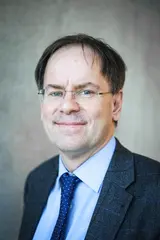In view of the war in Ukraine, as well as many other armed conflicts around the world, prayers for peace are gaining new importance in Christian churches and other religious traditions. In a digital lecture series, theologians from different denominations and other interlocutors explore the question of what peace prayer means today in the midst of a secular and plural society: How does theology explain these prayers? What forms of (communal and worship) peace prayer are there today? To what development and thus history do services of worship specifically dedicated to the cause of peace go back? How do liturgy and ethics, but also liturgy and politics relate to each other? What role does ecumenism play? To what extent are these prayers open to non-Christians and non-believers? The lectures ask about a ritual form of religious commitment to peace in the midst of a society that defines itself in secular terms.
The lecture series is organized by the professorships for liturgical studies at the Faculties of Catholic Theology at the Universities of Erfurt and Tübingen and is held in cooperation with the academies of the Dioceses of Erfurt and Rottenburg-Stuttgart.
The lectures take place every Tuesday at 7:15 p.m. - as a digital format that you can follow via the Youtube channel "Uni Erfurt live". Each 30-minute input will be followed by a discussion round.
The event starts on December 6. The two organizers of the lecture series, Professor Benedikt Kranemann (Erfurt) and Professor Stephan Winter (Tübingen), will then talk about the question "Fängt da der Friede an? Liturgien als Räume von Friedensverheißung und Friedensvermissen" (Does peace begin there? Liturgies as spaces of the promise of peace and the promise of peace).


